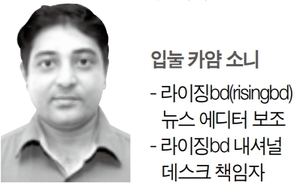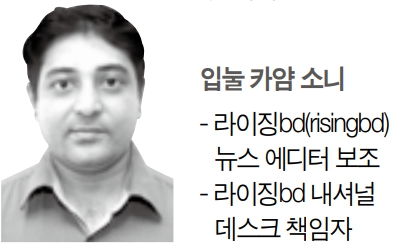

On August 5, 2024, amid widespread student and public protests in Bangladesh, the Awami League government, which had been in power for 15 years, fell. The party’s leader and former Prime Minister Sheikh Hasina sought refuge in neighboring India. Many of the party’s top leaders fled the country, while others were arrested. Party workers and supporters found themselves in a dire situation.
The danger for Awami League workers and supporters has not yet subsided. There are frequent reports of their houses being set on fire, businesses being looted, and arrests. Almost every day, there are reports of them being harassed by activists from other opposition parties. The same oppression they once carried out has, over time, returned to affect them.
Many are trying to switch sides and join the main opposition parties. Some are succeeding, while others are being caught and becoming a laughing stock. Everyone is desperately trying to survive, forgetting their past actions.
However, there are allegations that influential figures from the defeated power are still lurking in various state agencies and holding important positions. They change their colors and speak and behave according to the prevailing winds. Because no one can predict which way the country’s situation will turn. Moreover, it is difficult to anticipate the situation based on the country’s current course of events.
The situation of determining how a country without a political government will be run has turned into a ‘too many cooks spoil the broth’ scenario. This is because, like ‘many sages, many opinions’ the entire nation is confused by the diverse views of different advisors. Allegations of corruption, illegally profiting from opportunities, and rehabilitating the defeated power have already surfaced against some of the advisors.
Previously, the Awami League government came to power for the last time in Bangladesh through a controversial election in 2024. Within just six months, that government fell. Since then, Muhammad Yunus’s interim government has been in power. Since the fall of the Hasina government, the people of Bangladesh have repeatedly demanded elections. Under pressure, the government has had to give assurances and discussions on this issue have taken place in the political arena.
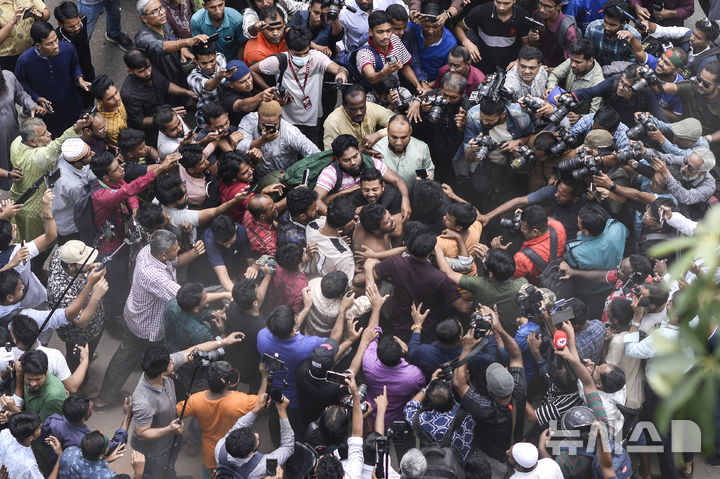

Meanwhile, ‘Envision Consulting Bangladesh’ has conducted a public opinion survey on the elections in Bangladesh. ‘Brain and the free-thinking’ platform ‘Voice for Reform’ collaborated on this survey. They have highlighted the potential election results of Bangladesh in their survey report. The survey revealed that the people of Bangladesh want elections to be held quickly.
On Friday, February 28, 2025, a new youth party, the National Citizen Party (NCP), was launched. Nahid Islam was announced as the convener of the party, and Akhtar Hossain as the member secretary.
Two days prior, on February 26th, Sarjis Alam, the chief organizer (former) of the National Citizen Committee, had announced their intention to launch the new party and announce its leaders with a gathering of at least two hundred thousand people.
However, several organizers and journalists covering the event suggested that the public gathering was not as large as expected. Nevertheless, a significant number of people were seen at Dhaka’s Manik Mia Avenue on the day the new party began its journey. There is some ambiguity about the public’s expectations from this new party. As a new party, their political wisdom has not yet been fully demonstrated. However, it is rumored that the administration is treating them with caution.
Meanwhile, the general citizens of the country are somewhat disappointed with the activities of the major political parties, such as the Bangladesh Nationalist Party (BNP), Jamaat-e-Islami Bangladesh, Jatiya Party, and the left-wing parties like Bangladesh Socialist Party (BSD), Workers Party, Communist Party of Bangladesh (CPB), Jasad or Gono Forum.
In this time, BNP leaders and activists have begun to behave as if they have already taken state power. Their behavior has started to irritate the general public. They are following in the footsteps of the former ruling party, the Awami League, by engaging in land grabbing, looting, extortion, hooliganism, and oppression. It is even rumored that the party will form an alliance with the Awami League in the upcoming elections, which has disappointed and angered the general public. Because the people of the country want peace. They do not like violence, murder or rape. The people of the country are fundamentally peace-loving.
In addition to these, the people of the country want reasonable commodity prices, the creation of new employment sectors, reduction of unemployment, quality and job-oriented education, advanced education capable of contributing to global competition, proper medical services, and social security. They want an improved standard of living.
During the Awami League’s 15-year rule, the politics of the BNP and Jamaat-e-Islami were marginalized. The Jatiya Party became a puppet opposition party for show. The left-wing parties also began to curry favor with the Awami League government. Religious parties were also ineffective, almost non-existent.
However, after August 5th, everyone seemed to regain new life. The BNP and Jamaat-e-Islami began to play a renewed role. Religious political parties such as Islami Andolan and Hefazat-e-Islam also resurfaced. However, the people want to see what role each of them plays in the country’s current politics.
‘Envision Consulting Bangladesh’ a leading international development research and project management organization, has conducted a public opinion survey to understand the electoral perspectives of the people of Bangladesh in the current context. The survey covers when people want elections, what they expect from the current and future governments, who they want to vote for, and what factors are important in voting. This survey was conducted on 10,696 potential voters across 64 districts in Bangladesh.
55.1% of voters stated that the interim government has failed to meet expectations regarding price hike control. 42.33% of voters opined that expectations have been partially met. 2.62% of voters stated that expectations have been fully met. Regarding the improvement of law and order, 58.2% of voters stated that expectations have been met, 40.33% of voters said they have been partially met, and 1.4% of voters said they have been fully met.
74.21% of voters said employment has increased, 24.34% of voters said expectations have been partially met in this regard, and 1.2% of voters said they have been fully met. 41% of respondents said extortion has increased significantly in 6 months, 29.8% of voters said extortion has decreased, 17.8% of voters said extortion is continuing as before, and 11.4% of voters did not comment.
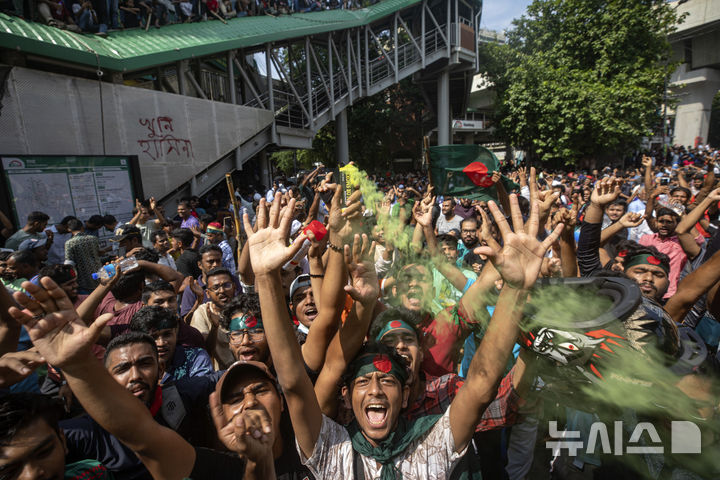

Most voters have clearly stated that their main concerns are issues such as economic stability, improvement of law and order, increase in employment opportunities, transparency in government services, and strict measures against corruption. 71% of voters say price hikes must be controlled. 52% of voters say the government must quickly control law and order.
On the other hand, 40% of voters want an increase in employment, 33% of voters strongly demand an end to corruption in government services, 22% of voters say corruption allegations must be investigated promptly, 21% of voters want increased access to government services, and 19% of voters say improved infrastructure must be built for business establishments.
Until now, the interim government has given various statements regarding the timing of the elections. Under pressure, the government has had to give assurances. Chief Advisor Muhammad Yunus had indicated that elections could be held in June or December 2025.
The survey revealed that 31.6% of voters want the next election by June 2025, and 26.5% of voters want the next election by December 2025. Notably, 23.95% of urban voters and 34.41% of rural voters want the election to be held by June 2025.
34.3% of voters did not specify who they would vote for. Among the remaining 65.7% of voters, 41.7% said they would vote for the Bangladesh Nationalist Party (BNP), 31.6% said they would vote for Jamaat-e-Islami, 13.9% said they would vote for the Awami League, 5.1% said they would vote for the student-led new political party, and 7.6% said they would vote for others.
The BNP has received the highest votes in Barisal division (31.66%), Chittagong (47.82%), Dhaka (44.71%), Mymensingh (44.71%), Rajshahi (42.68%), and Sylhet (51.02%). On the other hand, Jamaat-e-Islami is leading in Khulna (46.32%) and Rangpur division (44.91%).
These results indicate that the BNP will be ahead in the upcoming elections, and Jamaat-e-Islami may become their main opposition. However, this Jamaat-e-Islami was once allied with the BNP. Meanwhile, the new student-led party has received the highest votes in Chittagong division (7.35%). However, experts believe that the candidate list can change the election results. Additionally, the new party NCP will have to work hard to reorganize the party and fulfill public expectations in the time they have before the election.
The survey revealed that candidates are more important to voters than parties. 21% of voters said they vote based on the party. On the other hand, 38.1% of voters opined that candidates are important to them. In addition to parties and candidates, grassroots politics, religious politics, and ideological positions related to the July uprising can also have an impact. 26.6% of voters said they would prioritize grassroots politics, 20.5% religious politics, and 16.4% ideological positions related to the July uprising.
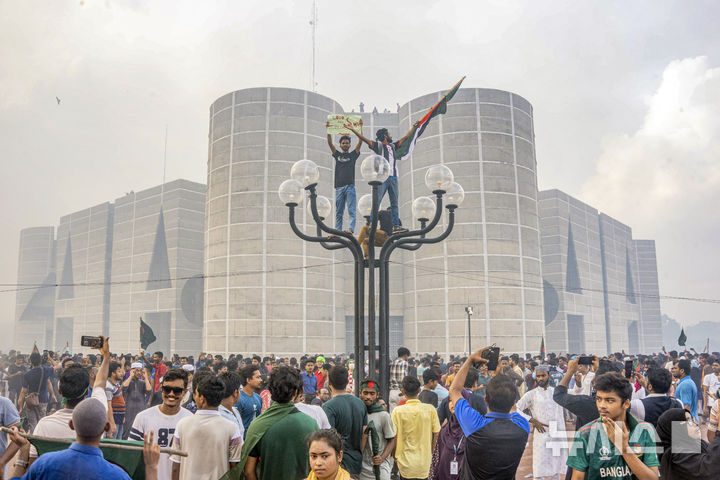

Notably, in the recent anti-Awami League government movement in Bangladesh, there was unity among all parties. However, as time progressed, political parties were seen to emphasize their own politics and strategies more.
The BNP has been demanding immediate national parliamentary elections from the beginning. On the other hand, Jamaat-e-Islami wants elections to be held within a ‘reasonable time’ after the reforms are completed. Regarding the election timing, some of the remaining parties are supporting Jamaat-e-Islami’s demands, while others are emphasizing the BNP’s demands. However, questions were raised about whether national elections would have to be postponed if the Constituent Assembly elections were held.
According to a recent BBC report, the Election Commission has stated that holding local government elections would ‘delay’ national elections. As a result, the decision regarding national parliamentary, constituent assembly, or local government elections remains uncertain.
Now, the people of the country must choose which ideology and political party will effectively play a role in changing their fate. Because the elected government will not only have to deal with internal politics, conspiracies, and crises but also with international conspiracies, false accusations, solving various problems and establishing business and economic relations.
Let’s see if the general public chooses the old ideological political parties or the new youth party. Only time will tell which path the people of the country will take, and which path the new Bangladesh will follow.

